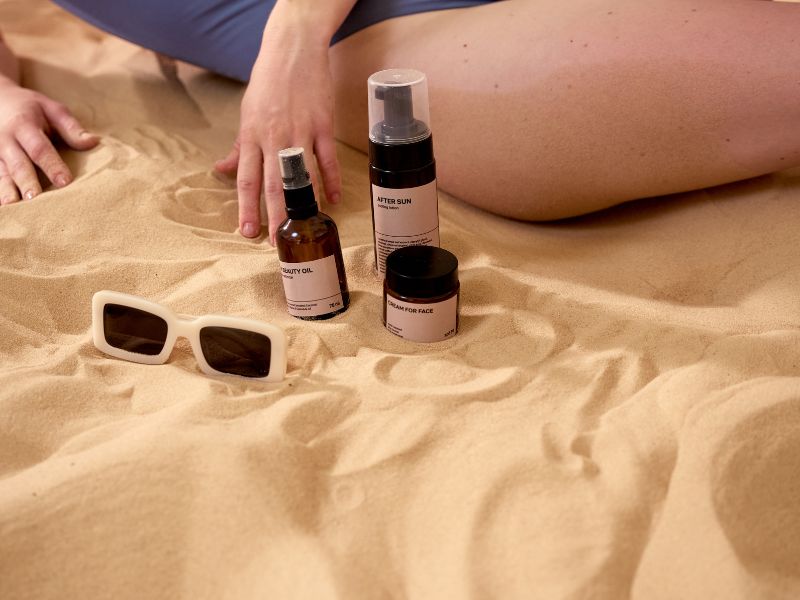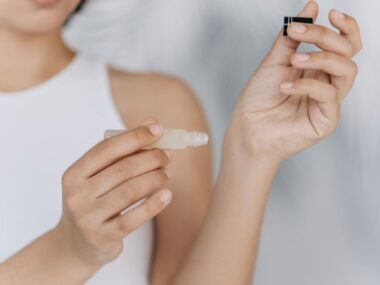Pigmentation and dark spots are common skincare concerns for many people, regardless of age or skin type. Whether caused by sun exposure, hormonal changes, acne scars, or aging, dark spots and uneven skin tone can impact one’s confidence and appearance. One of the most effective ways to prevent and manage pigmentation is by using sunscreen daily. Sunscreen acts as a barrier against harmful UV rays, which not only cause sunburns but also accelerate the production of melanin, worsening dark spots and pigmentation.
Choosing the best sunscreen for pigmentation and dark spots can make a significant difference in protecting and improving the appearance of your skin. This article covers everything you need to know about selecting the right sunscreen for your skin, how it helps with pigmentation, and a list of top recommended sunscreens for reducing dark spots.
Why Sunscreen is Essential for Pigmentation and Dark Spots
UV rays from the sun can be classified into two primary types: UVA and UVB rays. Both of these can harm the skin in various ways:
- UVA Rays penetrate deeply into the skin and are primarily responsible for skin aging, hyperpigmentation, and the development of dark spots. They also play a role in skin cancer development.
- UVB Rays cause sunburn and are the primary contributor to skin cancers. While they don’t penetrate as deeply as UVA rays, they still stimulate melanin production, leading to pigmentation issues.
Sunscreen works by blocking or absorbing these harmful UV rays, minimizing skin damage and preventing the worsening of existing pigmentation. Moreover, if you are using other skincare treatments like vitamin C, retinoids, or exfoliating acids to reduce dark spots, sunscreen helps protect your skin from becoming more sensitive to sunlight.
Key Factors to Consider in Sunscreen for Pigmentation and Dark Spots
When looking for the best sunscreen for pigmentation and dark spots, it’s important to look at more than just SPF (sun protection factor). Here are some critical factors to keep in mind:
- Broad-Spectrum Protection
Broad-spectrum sunscreen protects against both UVA and UVB rays. For those struggling with pigmentation and dark spots, broad-spectrum protection is essential because UVA rays are the main culprits behind skin discoloration. - SPF Rating
Dermatologists recommend using a sunscreen with at least SPF 30 for daily use, especially if you are aiming to prevent pigmentation and protect against dark spots. SPF 50 is ideal for prolonged outdoor exposure. - PA Rating
Some sunscreens, especially those from Asian brands, also come with a PA rating (e.g., PA+, PA++, PA+++, PA++++), which indicates the level of UVA protection. Higher PA ratings mean stronger UVA protection, which is particularly beneficial for those with pigmentation. - Ingredients
Look for sunscreens with skin-soothing and brightening ingredients like niacinamide, vitamin C, and antioxidants, which help reduce inflammation and hyperpigmentation. Avoid sunscreens with harsh chemicals that could irritate your skin, as irritation can make dark spots worse. - Formulation
The right formulation will depend on your skin type. For example:- Dry Skin: Look for sunscreens with hydrating ingredients like hyaluronic acid and glycerin.
- Oily/Acne-Prone Skin: Opt for oil-free, non-comedogenic sunscreens that won’t clog your pores.
- Sensitive Skin: Mineral-based sunscreens with zinc oxide and titanium dioxide are less likely to cause irritation.
Top Sunscreens for Pigmentation and Dark Spots
1. La Roche-Posay Anthelios Melt-in Milk Sunscreen SPF 60
Why it’s great: La Roche-Posay’s Anthelios sunscreen is a cult favorite for a reason. With SPF 60 and broad-spectrum protection, this sunscreen provides strong defense against UVA and UVB rays. It has a lightweight, fast-absorbing texture that feels comfortable on the skin.
Key ingredients: Mexoryl SX (a powerful UVA filter), antioxidants to prevent free radical damage, and glycerin for added moisture.
Best for: All skin types, especially sensitive skin.
2. EltaMD UV Clear Broad-Spectrum SPF 46
Why it’s great: EltaMD’s UV Clear sunscreen is formulated with niacinamide, which is known for its brightening and anti-inflammatory properties, making it ideal for those with pigmentation and acne-prone skin. This sunscreen is oil-free, making it perfect for oily and combination skin.
Key ingredients: Niacinamide, zinc oxide (physical sunscreen), and hyaluronic acid for hydration.
Best for: Acne-prone and sensitive skin types, especially those with dark spots and post-acne marks.
3. SkinCeuticals Physical Fusion UV Defense SPF 50
Why it’s great: This mineral-based sunscreen provides SPF 50 and is lightly tinted to provide a bit of coverage for imperfections. SkinCeuticals’ formula is known for its excellent UVA protection, making it ideal for preventing and managing pigmentation.
Key ingredients: Zinc oxide, titanium dioxide, and artemia salina extract, which helps boost the skin’s defenses against UV and heat-induced damage.
Best for: Sensitive, oily, and normal skin types.
4. Murad City Skin Age Defense Broad Spectrum SPF 50 PA++++
Why it’s great: This sunscreen is specifically formulated to protect against multiple environmental stressors, including UV rays, blue light, and pollution, all of which can worsen pigmentation and dark spots. With its PA++++ rating, it offers maximum UVA protection.
Key ingredients: Vitamin C for brightening, lutein for blue light protection, and zinc oxide for mineral-based protection.
Best for: All skin types, particularly those frequently exposed to digital devices and urban pollution.
5. Black Girl Sunscreen SPF 30
Why it’s great: Designed for melanin-rich skin, this sunscreen blends seamlessly into darker skin tones without leaving a white cast. It provides broad-spectrum SPF 30 protection while moisturizing the skin and reducing inflammation.
Key ingredients: Jojoba oil, avocado oil, and vitamin C, which help keep skin hydrated and radiant.
Best for: All skin types, especially medium to dark skin tones.
6. ISDIN Eryfotona Actinica SPF 50+
Why it’s great: ISDIN’s Eryfotona Actinica sunscreen is designed to repair existing sun damage while protecting the skin. Its DNA repair enzymes help repair cellular damage caused by UV rays, making it particularly effective for those with existing dark spots.
Key ingredients: Zinc oxide, photolyase enzymes for DNA repair, and antioxidants.
Best for: Aging skin, dry skin, and those with pigmentation issues.
7. Supergoop! Unseen Sunscreen SPF 40
Why it’s great: Supergoop’s Unseen Sunscreen has a gel-like, invisible texture, making it perfect for daily use under makeup. This sunscreen is known for its versatility and lightweight feel, while still offering reliable protection.
Key ingredients: Red algae, which provides additional protection from blue light, and meadowfoam seed oil, which helps with hydration and skin balance.
Best for: All skin types, particularly those who want a primer-like finish.
How to Apply Sunscreen for Maximum Protection Against Pigmentation
To maximize the effectiveness of your sunscreen and protect against pigmentation, follow these tips:
- Apply Generously
The general guideline is to use a quarter teaspoon of sunscreen for the face and neck. Be sure to cover all areas that are exposed to the sun. - Reapply Regularly
Sunscreen should be reapplied every 2 hours, especially if you are outside, sweating, or swimming. Reapplication is crucial to maintain consistent protection throughout the day. - Use It Indoors Too
UVA rays can penetrate through windows, so wearing sunscreen indoors, especially if you spend a lot of time by windows or under strong artificial lighting, is beneficial. - Don’t Forget the Ears and Neck
These areas are often neglected, but they are prone to pigmentation too. Apply sunscreen to your ears, neck, and even your hands if they will be exposed to sunlight. - Combine with Other Sun Protection Measures
Sunscreen alone may not be enough for maximum protection against pigmentation. Wearing a hat, sunglasses, and staying in the shade during peak sun hours can significantly reduce sun exposure.
Additional Tips for Reducing Pigmentation and Dark Spots
- Incorporate Skin-Brightening Ingredients: Ingredients like vitamin C, niacinamide, and licorice root extract are excellent for lightening dark spots and can be used alongside sunscreen.
- Use Retinoids: Retinoids (vitamin A derivatives) encourage cell turnover, which can help fade dark spots over time. However, retinoids make the skin more sensitive to sunlight, so sunscreen is essential.
- Avoid Picking Pimples: Post-inflammatory hyperpigmentation is common after picking or popping pimples. By avoiding this habit, you reduce the risk of developing new dark spots.
- Consider Professional Treatments: Chemical peels, laser therapy, and microneedling are professional treatments that can help reduce stubborn pigmentation. Consult a dermatologist to see which options are right for you.






